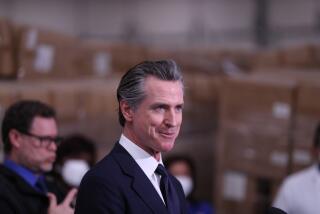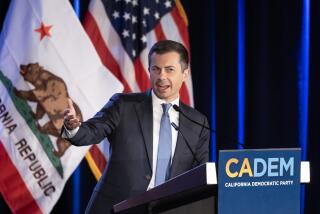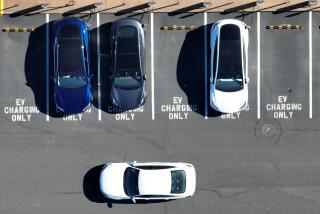Governors in Long Beach to Talk About Trade Efforts
Governors from 16 Western states began arriving in Long Beach on Sunday for a two-day conference focusing on how they might consolidate costly, duplicative foreign trade efforts.
Not only could they save money for their states’ taxpayers, the theory goes, but uniting some trade programs under one regional banner could increase the West’s clout overseas and in Washington.
Gov. George Deukmejian suggested on Sunday, for example, that it would be to California’s advantage to team up with other states and open joint trade offices in Canada and Taiwan.
But Deukmejian also said that, because of California’s immense size, he would oppose closing any of this state’s recently opened trade offices in Tokyo, London and Mexico City.
The state also intends to open offices within the next year in Frankfurt and Hong Kong.
Deukmejian, current chairman of the Western Governors’ Assn., could have chosen any place in California to host this year’s annual conference--Santa Barbara, the Monterey Peninsula, Lake Tahoe, Laguna Beach. But he chose his hometown, with its Spruce Goose, Queen Mary and offshore oil rigs--all of which he intends to show off to the governors.
“If you look out the window of the hotel,” he told reporters at the Hyatt Regency, “you’ll see some of the offshore (oil drilling) islands that have been operating here for years and years and years with no damage. In fact, the city is thriving more now than it ever has.”
Opposes Moratorium
Deukmejian reiterated his opposition to a moratorium on offshore drilling, calling it “very shortsighted.” This puts him at odds with other major state politicians, including the Republican he is backing to be his successor, Sen. Pete Wilson.
At the conference, Alaska Gov. Steve Cowper intends to complain about initial cleanup efforts of Exxon Corp. and the federal government after the Valdez oil spill.
The Alaska governor also will attempt to place the Western governors on record urging the Bush Administration to return the Soviet Union to “most favored nation” status. His aim is to promote cooperative fishing ventures and tourism between Alaska and the Soviets.
The United States withdrew “most favored nation” status from the Soviet Union in 1974, because of Moscow’s restrictions on Jewish emigration.
Deukmejian said “it’s probably a good idea” to now dangle favored nation status to the Russians as “an inducement” to further relax Jewish immigration.
The California governor’s major emphasis at the conference, however, will be on foreign trade. A conference report, prepared at his direction, points out that Western states now are spending $21 million--half of it by California--promoting international trade, investment and tourism. Those states have 24 offices alone in East Asia and the Pacific.
Deukmejian said there is “a compelling case” for consolidating some programs.
“In recent years there has been a profound shift in terms of (the nation’s) economics, population and culture from the East and the Midwest to the West,” he told reporters. “The West is ready to raise its profile even higher and to further expand its horizons.”
More to Read
Sign up for Essential California
The most important California stories and recommendations in your inbox every morning.
You may occasionally receive promotional content from the Los Angeles Times.










